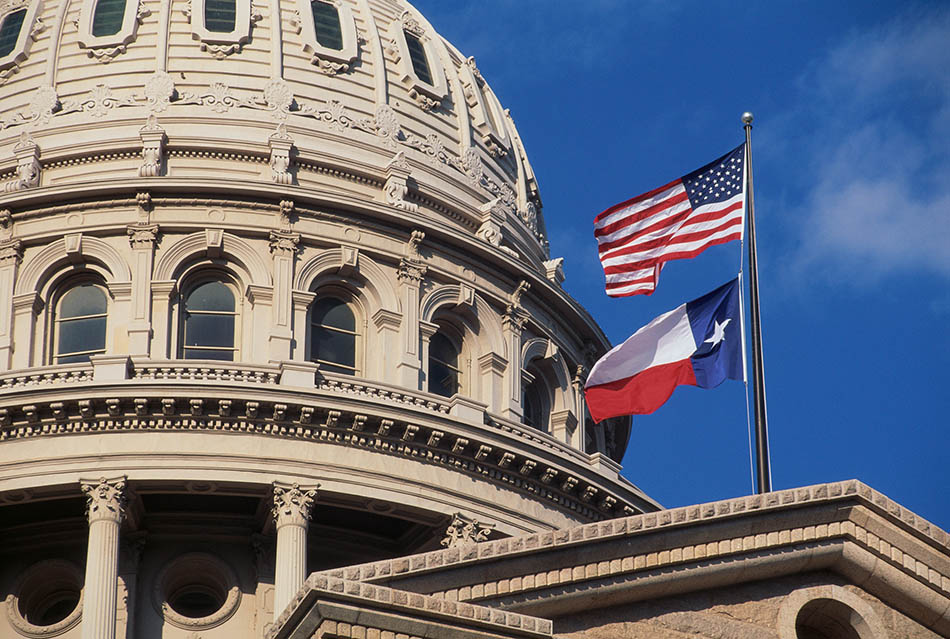Computer Giants Push Fight Against Texas Content-Moderation Law
Seek stay saying U.S. Supreme Court is likely going to weigh in

The smarter way to stay on top of the multichannel video marketplace. Sign up below.
You are now subscribed
Your newsletter sign-up was successful
Edge providers have asked a U.S. appeals court to block the implementation of a Texas law that regulates how those platforms can moderate their content, a move the computer companies frame as an existential threat to their business models.
That motion of stay filed en banc (full court) with the 5th U.S. Circuit Court of Appeals was filed by the Computer & Communications Industry Association and NetChoice, whose members include Facebook (Meta), Google, Twitter and Amazon, among many others, after a panel of the same court paved the way for the law’s implementation.
That panel two weeks ago ruled that corporations do not have a “freewheeling First Amendment right to censor what people say,” and thus has paved the way for the Texas law (HB 20), which restricts how social-media giants moderate their content.
Also: Court Told Texas Law Would Wreck Online Ad Platforms
The law, which passed a Republican-controlled legislature last year, “prohibits an interactive computer service from censoring a user, a user’s expression, or a user's ability to receive the expression of another person based on … the viewpoint of the user or another person.” It also requires large social media platforms like Facebook and Twitter to disclose how they manage content, to publish an acceptable-use policy that users can find telling them what content is acceptable, to publish quarterly transparency reports and to have a complaint system in place.
The Supreme Court had stayed the implementation of the law until a three-judge panel of the 5th Circuit made that decision. Now that the panel has weighed in, though, the law can take effect unless the 5th Circuit agrees to the CCIA/NetChoice stay request.
CCIA and NetChoice said they will appeal the panel decision to the Supreme Court, which they say is likely to hear it because it involves issues of great importance and because different appeals courts have ruled differently on the issue. Resolving such circuit splits is one of the reasons the Supreme Court agrees to hear appeals.
The smarter way to stay on top of the multichannel video marketplace. Sign up below.
“Granting a stay will prevent irreparable harm to Plaintiffs’ member companies while the Supreme Court reviews the vital constitutional issues raised by legislation such as HB20,” they told the full 5th Circuit. “The majority opinion in this case creates a clear circuit split with the [11th U.S. Circuit Court of Appeals] and misapplies the Supreme Court’s important First Amendment precedents.”
In a separate case, CCIA and NetChoice point out, the 11th U.S. Circuit ruled that websites have a First Amendment right to decide what speech they publish and their reasons for doing so, or not doing so.
The Supreme Court this week signaled it thinks the issue of online content moderation is one of great importance, agreeing to hear appeals of two decisions relating to the moderation of terrorist-related speech on social media.
Internet advertisers and others filed a friend of the court brief at the Supreme Court in support of NetChoice and the CCIA back when that court was staying the initial decision. Those advertisers and others said the law will irreparably damage online platforms as advertising vehicles.
“Forcing private companies to give equal treatment to all viewpoints on their platforms places foreign propaganda and extremism on equal footing with decent Internet users, and places Americans at risk,” CCIA president Matt Schruers has said of the law. “ ‘God Bless America’ and ‘Death to America’ are both viewpoints, and it is unwise and unconstitutional for the State of Texas to compel a private business to treat those the same.”
In fact, those computer companies have likened the law to the FCC’s Fairness Doctrine, which once imposed an affirmative obligation on broadcasters to present issues of public importance and to seek out opposing viewpoints on those issues. The demise of the doctrine in the 1980s is credited with giving rise to the conservative talk-radio boom. ▪️
Contributing editor John Eggerton has been an editor and/or writer on media regulation, legislation and policy for over four decades, including covering the FCC, FTC, Congress, the major media trade associations, and the federal courts. In addition to Multichannel News and Broadcasting + Cable, his work has appeared in Radio World, TV Technology, TV Fax, This Week in Consumer Electronics, Variety and the Encyclopedia Britannica.

